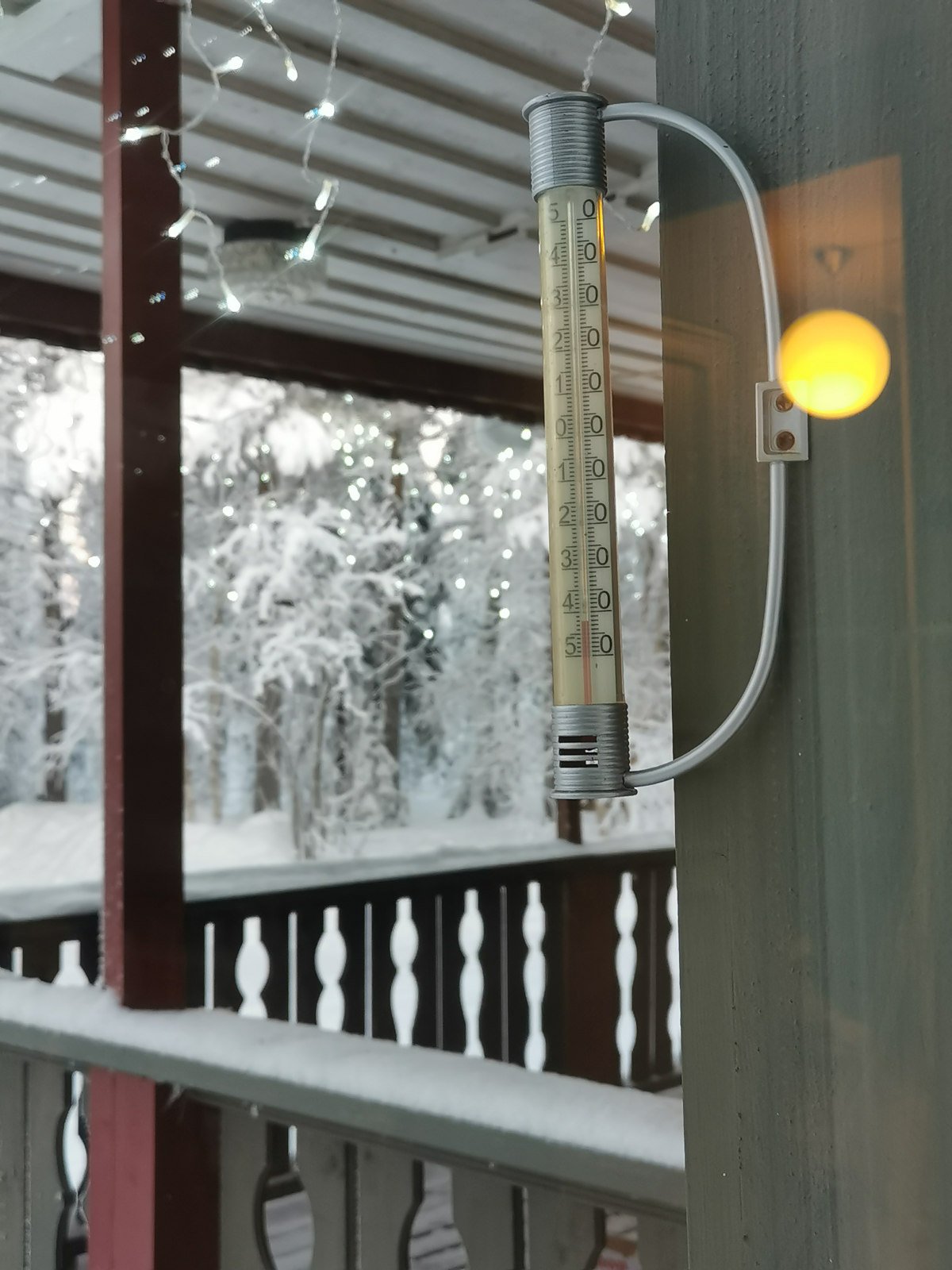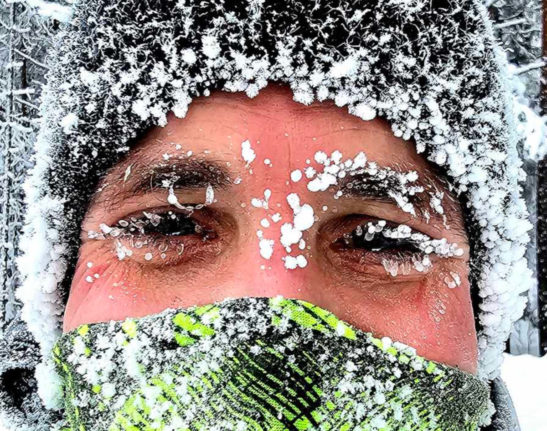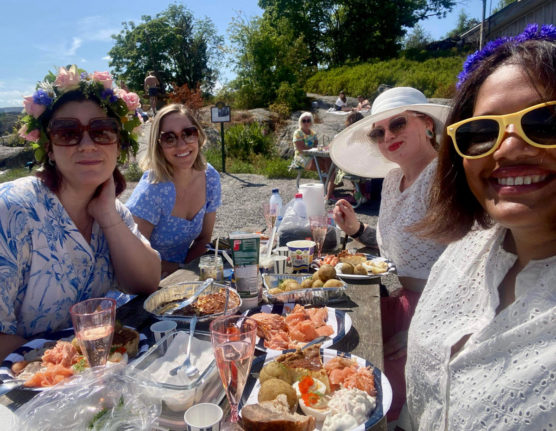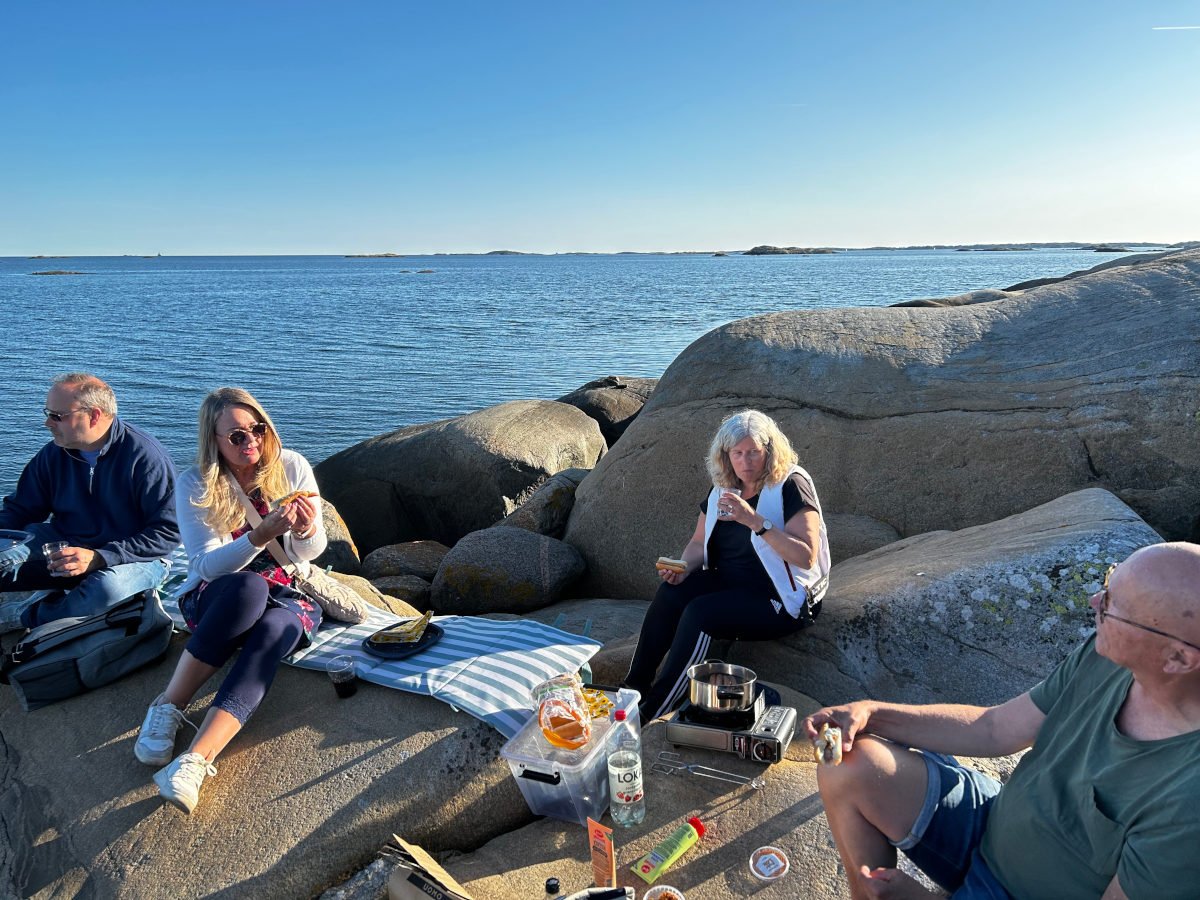When around 3,000 households west of Luleå in northern Sweden were plunged into darkness after a power outage in degrees of around -40C, forcing preschools to close and care homes to rev up their power backup units, Quinten Elpers was one of those helping out.
The Belgian, who runs the tourism company River Valley Travels, spent the day driving guests from the Arctic Bath hotel in the Lule River into Luleå after the blackout meant it had to be evacuated.
He tells The Local that these temperatures are “extreme by all means, even for us. Most of the time we spend inside these days, more because at this point it becomes a safety issue rather than just ‘feeling cold’.”
“I work in the tourism industry and everywhere tours and activities need to be modified so everyone keeps safe. Interesting times for sure.”
On Thursday night, the Swedish meteorological agency SMHI’s weather station at Naimakka – some 70 kilometres from Sweden’s northernmost point – recorded -43.8C, not just the coldest temperature this season but the country’s coldest in over two decades.
This week is the first time Sweden has seen temperatures drop below -40C since 2021.
Another one of The Local’s readers, Cora, moved from Provence in France to Sweden seven years ago and now lives in Vittangi, a village of some 750 residents around 50 kilometres east of Kiruna, Sweden’s most northerly city.
“When local people start posting pictures of their thermometers on social media, then you know that this is not the everyday life happening out there!” she says.

She and her family heat their house with ground source heating, pellet fuel and three fireplaces, but she says it’s still an all-day project to keep it warm when the mercury falls below -40C.
“On Wednesday morning it was only 15.6C in our daughter’s bedroom and 14.5C in the kitchen, even though we’ve tried covering the places where cold air leaks the most. We’ve gone through our stock of wood so quickly so we will have to find a solution, but luckily there are options and solidarity works well in small places like here,” she says.
“I am surprised by how much difference cold makes to heat the house. You’d think that the -20 or -25 that we’re used to here are already extreme, but the difference is really impressive. The heating systems that work well at those temperatures do nothing against this cold now.”
She says people in Vittangi had prepared for the low temperatures, by for example making sure to do their grocery shopping in advance so that they wouldn’t have to drive when the big freeze hit.
“We haven’t got any post since Christmas, there are no buses, some schools have to close,” she says. “Personally I had to cancel an appointment to the hospital, not knowing if I would make it there or if the doctor would either. Already starting the car is a 50-50 bet, but you don’t want to be stuck on the road with no one driving by all day.”

But neither Cora nor Quinten have any regrets about their lives in the far north. The cold but dry weather may be challenging but is usually more pleasant than the humid wind in southern Sweden, and in the other half of the year they get to enjoy never-ending days with normal summer temperatures. And milder weather is in store for this weekend, with northern Sweden set for higher temperatures than the south.
“Strangely enough, taking the dog for a walk with the right clothes was really not that bad. I was just enjoying the beauty of the Lappland colours, knowing that this is unique. But I also believe that -42 here with dry air and no wind may feel less cold than -20 with humidity and wind. On Tuesday they predict +2, though, crazy,” says Cora.
“This is the life I chose and these extreme temperatures are part of it.”

Wrapping up warm and dressing right helps you face the cold winter.
“The main tip to stay warm is of course to stay inside,” laughs Quinten. “But if you need to get out, use layers. Have two ‘thinner’ layers rather than one big one. A good base layer goes a long way. Don’t wear tight clothing, up here no one cares about fashion!”





 Please whitelist us to continue reading.
Please whitelist us to continue reading.
Member comments